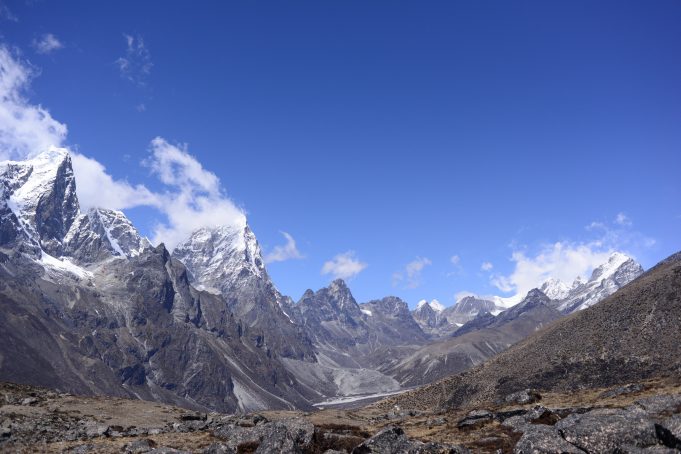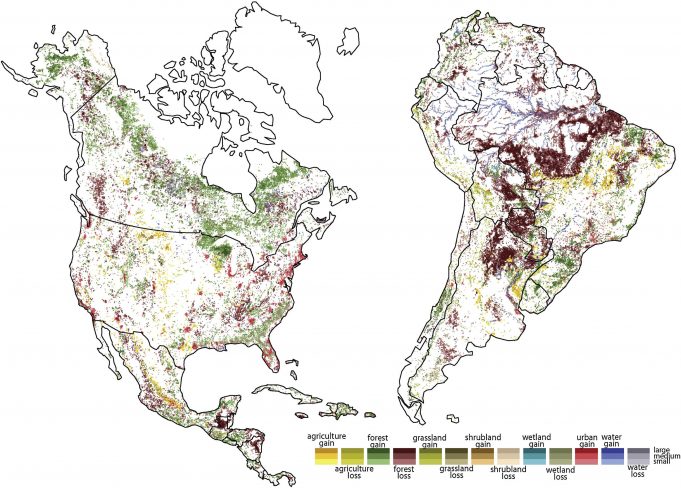Oil and gas production has doubled in some parts of the United States in the last two years, and scientists can use satellites to see impacts of that trend: a significant increase in the release of the lung-irritating air...
Plant life is expanding in the area around Mount Everest, and across the Himalayan region, new research shows.
Scientists used satellite data to measure the extent of subnival vegetation—plants growing between the treeline and snowline—in this vast area.
Little is known about...
A study of seven wastewater treatment plants in the Eastern United States reveals a mixed record when it comes to removing medicines such as antibiotics and antidepressants.
The research points to two treatment methods—granular activated carbon and ozonation—as being particularly...
University of Cincinnati geography researchers have identified a tipping point for deforestation that leads to rapid forest loss.
Geography professor Tomasz Stepinski used high-resolution satellite images from the European Space Agency to study landscapes in 9-kilometer-wide blocks across every inch...
The decommissioning of coal-fired power plants in the continental United States has reduced nearby pollution and its negative impacts on human health and crop yields, according to a new University of California San Diego study.
The findings published this week...
As the effects of climate change are increasingly felt around the world, possible solutions—from reducing fossil fuel emissions to capturing carbon—have come to dominate policy discussions. Planting new forests and restoring existing ones have emerged as some of the...
The global low-carbon revolution could be at risk unless new international agreements and governance mechanisms are put in place to ensure a sustainable supply of rare minerals and metals, a new academic study has warned.
The amount of cobalt, copper,...
Researchers from King's have carried out the first study of microplastics in the atmosphere in London to determine what people within the city might be exposed to and where this comes from.
In the study published today in Environment International, they...
Ten years after the publication of their first plan for powering the world with wind, water, and solar, researchers offer an updated vision of the steps that 143 countries around the world can take to attain 100% clean, renewable...
Families with higher carbon footprints are likely to consume more confectionary, alcohol and restaurant food, according to a new study published in One Earth.
Considering the spectrum of traditional to urban lifestyles across Japan, researchers at the University of Sheffield and...
Nuclear power continues to expand globally, propelled, in part, by the fact that it produces few greenhouse gas emissions while providing steady power output. But along with that expansion comes an increased need for dealing with the large volumes...


















